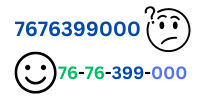Memory Problems? Discover the Alarming Link Between ADHD, Depression, and Dementia—And How to Know If You’re at Risk
Have you ever picked up your phone to do something, only to forget what it was moments later? Or struggled to remember the details of a chat you had just a day ago? For those living with ADHD or depression, these memory lapses may feel more like a recurring frustration than just a random occurrence. But how can you tell if it’s related to ADHD, depression, or even something more serious? That’s the puzzle we’re exploring today.
The topic we’re tackling today:
Distinguishing memory issues caused by ADHD from those related to depression
It’s a great question because ADHD, depression, and memory issues often overlap in complex ways. Let’s go through it step by step, focusing on how each condition impacts memory and cognition.
ADHD and Memory
ADHD primarily affects attention, focus, and what is called working memory—the ability to hold and work with information temporarily. With ADHD, it’s typical to forget small tasks, lose track of personal items like glasses or your wallet, or struggle with multitasking, especially if it involves juggling several pieces of information at once. These memory issues are tied to executive functioning, which helps us stay organized and focused on tasks. Because ADHD is a neurodevelopmental disorder, it usually begins in childhood. In milder cases, symptoms may not become obvious until adulthood when demands increase. If you recall feeling easily distracted or forgetful as a child, ADHD might be contributing to your current challenges. However, ADHD is usually picked up by parents and teachers during childhood. Another aspect of ADHD is difficulty filtering out distractions. For example, imagine a friend is explaining a new recipe to you, but by the time they finish, you realize you can only remember the last ingredient they mentioned. This happens because ADHD can make it hard to stay focused on the essential details when there’s too much information to process. These lapses can look like memory problems when, in reality, they’re linked to issues with attention and focus. If you didn’t fully process what was said, it simply wasn’t retained well enough to recall later.Depression and Cognitive Impact
Depression is more than a feeling of sadness; it also affects cognitive functions and can create a “cognitive fog,” or what some call depression-related cognitive impairment. It is also called “pseudo-dementia” because it looks like dementia with similar symptoms. One key symptom of depression is poor concentration, which affects how well we process and store new memories. Depression can also make thinking feel slow or murky, like trudging through a thick fog. Depression often impacts executive functions as well, which means you might struggle to get organized, follow through with plans, or keep track of deadlines. However, unlike ADHD, which is persistent, cognitive difficulties from depression often lift as mood improves. Another unique aspect of depression is that it can make even simple tasks feel overwhelming, impacting your motivation. For example, activities that once excited you might now feel like a chore, and depression might make it difficult to shift gears between tasks. Unlike ADHD, which sometimes allows for “hyperfocus” on interesting tasks, depression tends to reduce interest in almost everything.ADHD vs. Depression: Key Differences
The biggest difference between ADHD and depression-related memory issues is consistency. ADHD-related memory struggles tend to be ongoing and don’t fluctuate with mood. On the other hand, depression-related memory difficulties often improve when mood symptoms improve. Additionally, ADHD-related focus challenges can be task-dependent: you may have excellent recall for topics that fascinate you while struggling with routine matters. Depression doesn’t typically offer this variation—people may feel disengaged from everything, regardless of personal interest.Dementia: When to Be Concerned
 It’s natural to worry about dementia if memory problems feel severe, but there are distinct differences. Dementia usually involves progressive decline that impacts not only memory but also abilities like language, spatial reasoning, and problem-solving. Unlike ADHD or depression, dementia can impair spatial orientation, so, for example, someone might forget familiar routes, like how to get home from a nearby park. Dementia often affects recent memories first, sparing long-term memories initially. So if memory issues are most obvious with recent events, it might be worth discussing with a healthcare provider. However, if you’re under 65, early-onset dementia is uncommon, and memory symptoms are more likely due to ADHD, depression, or lifestyle factors like stress or sleep issues.
It’s natural to worry about dementia if memory problems feel severe, but there are distinct differences. Dementia usually involves progressive decline that impacts not only memory but also abilities like language, spatial reasoning, and problem-solving. Unlike ADHD or depression, dementia can impair spatial orientation, so, for example, someone might forget familiar routes, like how to get home from a nearby park. Dementia often affects recent memories first, sparing long-term memories initially. So if memory issues are most obvious with recent events, it might be worth discussing with a healthcare provider. However, if you’re under 65, early-onset dementia is uncommon, and memory symptoms are more likely due to ADHD, depression, or lifestyle factors like stress or sleep issues.
Strategies for Memory Improvement
Now that we’ve gone over the possible causes, let’s explore some ways to improve memory. Addressing the underlying condition is crucial. For ADHD, this may include medication, behavioral strategies, or executive functioning coaching. For depression, a combination of therapy and, if needed, medication, can be effective.
Here are some practical memory aids and strategies:
– External Aids: Use reminders, digital alarms, or calendars to stay organized and minimize memory load.
– Chunking Tasks: Break tasks into manageable steps to make them less daunting.
– Routine Development: Create routines to minimize the need for working memory in everyday tasks.
– Mnemonic Devices: Memory aids can boost recall. Here’s a look at a few popular mnemonic techniques.
The Method of Loci (Memory Palace)
The Method of Loci, or memory palace technique, involves associating each item you want to remember with a familiar location. For example, picture your grocery list items around your living room: visualize apples on your coffee table, cereal next to the lamp, and milk by the window. When recalling, mentally “walk” through the room and see each item where you’ve imagined it.
Chunking
 Chunking helps by organizing information into smaller, manageable parts. For example, remembering an ID number as two or three small groups rather than a long sequence makes it easier to recall. This strategy can also be applied to tasks: categorize your to-do list by urgency, or break down study topics into themes. By organizing information, chunking reduces the load on your working memory, making it easier to remember later.
Chunking helps by organizing information into smaller, manageable parts. For example, remembering an ID number as two or three small groups rather than a long sequence makes it easier to recall. This strategy can also be applied to tasks: categorize your to-do list by urgency, or break down study topics into themes. By organizing information, chunking reduces the load on your working memory, making it easier to remember later.
Conclusion:
If you’re dealing with memory problems related to ADHD or depression, consider reaching out to a healthcare provider. They can help you differentiate between conditions and offer guidance on effective treatments. Memory issues related to ADHD or depression are typically manageable and don’t progress like dementia, so there’s hope for improvement with the right strategies.


